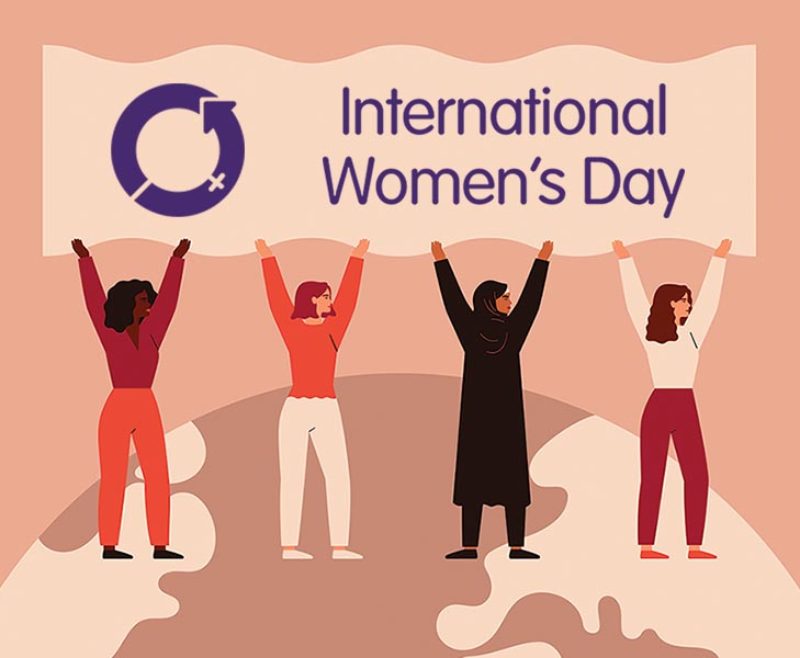
International Women’s Day
Feeling invisible? Well not today. It is your day. A day when the world must adjust its focus through a lens focused on women both in the UK and around the world.
When reviewing my casework, I seek out trends, make connections and then research these spaces to challenge policy and where necessary, the law. The suppression of women continues to be a huge and growing issue.
While the economic and social state of women has pushed back the advances made by women in the economy and society, the suppression of women’s power has most definitely determined this detriment. While equality has yet to be realised, regression is a reality we need to address.
Women are not the ones that are shaping this Government’s programme. Rarely seen leading the national response, such omission is resulting in Government ignoring the challenges women are experiencing, and by all accounts, pushing women away from the labour market and back into the home.
Provision has not sought to support women through this pandemic. The TUC found that 70% of people who lost their jobs were women. 71% of those who asked to be furloughed were denied and now it is women, working in the public sector who have been valued by the Chancellor as worthy of a real terms pay cut. As a trade union official, I consistently highlighted how gender-negative work environments, and for that matter, employment rights, were not only detrimental for women, but the economy as a whole.
Self-employed women who took maternity, had lower support packages from Government. Women, twice as likely to home-school, have had no support as they have had to juggle work, wider home, and caring responsibilities. This is why parents, having to take time off work when their child was sent home from school, should have been provided a parent’s isolation payment. With schools returning, this again will be a major topic discussed at the school gates.
But there is a darker picture that has also emerged. Women have been trapped in homes where domestic violence is a factor. They have found it harder to find respite or recourse to help. My casework is also highlighting the sheer scale of sexual violence that women have endured, either now or in the past. Accompanying this, the failure of statutory services to provide safe and secure housing in a timely way or vital trauma therapy.
I have walked through processes with women where they have had very little power and minimal provision. There can be no excuse. The reason for these failures is clear to see, women are just not viewed as a high enough priority to turn the systems towards meeting their need.
As ever I am in complete awe of organisations in York like IDAS, Survive and Kyra. At the heart of this storm, the women’s refuges and charities, places of sanctuary, provide lifesaving support to women in our city and region. However, these essential services have had their funding slashed over recent years. It is now urgent that we see a significant shift in the determination of health and social services to ensure that there is access to therapeutic support and places for women to start that healing journey.
Through my casework it is also very clear that the scale of physical, emotional and sexual abuse means there is something very wrong going on in our culture. York does not stand alone, but we cannot wait for someone else to resolve this. We have to get up stream and seek out the early interventions that are needed to keep women safe.
This week, the voices of women must be heard. Commitments must be made. There are no excuses acceptable. We need action.
As a politician, my quest to advance women’s justice reaches far beyond our city, and our shores.
Women and girls are in the front line when it comes to gender-based violence the world over.
Forced marriage, rape, the sexual exploitation of women and girls is commonplace. It is always difficult listening and incredibly chilling to hear the testimonials of women and girls who have had their dignity violated. But the UK is not powerless, it is just that the Government have failed to use its power sufficiently or effectively. The 8 March, enables us to have a voice which we all must use.
The Uyghur women, detained in ‘re-education camps’ in Xinjiang Province, have given voice to their experiences. Their children removed, forced to deny their identity and faith, stripped, beaten, raped and internally electrocuted, traumatised through crude forced sterilisation and forced abortions.
These women have had their lives stolen.
In North Korea, women are routinely subjected to sexual violence in the political prison camps. In Nigeria, women and girls are kidnapped into slavery. In Afghanistan, women have been used as weapons of war. In Asia, girls are sold into forced marriages. In the Phillipines, girls are marketed into the on-line sex industry, including here in the UK. If women are able to flee, they are then rejected by their communities and unable to work, often having had little education, minimal work opportunities and no power.
The traumatic global pandemic of abuse and violence against women and girls is on an industrial scale. Here in the UK and across the world the bodies and minds of women are being broken, but we must not let their voices be silent or their stories be untold.
A Government that is gender-blind is not using its power to fight for each and every woman, so we must educate, organise and act. Unless women rise up, speak up, act up, the suppression of women will grow.
Feeling invisible? Well not today. It is your day. A day when the world must adjust its focus through a lens focused on women. Women here in the UK and women around the world. What they must see is women rise, women speak and women demanding change.

